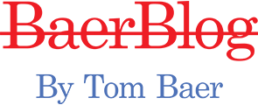Late in the day on September 11, 2001, JC called. His client, the lessee and operator of Pier 40 at West Houston Street and the Hudson River, had been “federalized.” Pier 40, with a large center area used as a playing field, was to be the morgue for bodies recovered from the World Trade Center. (No bodies were ever recovered.)
New York City Parks Enforcement had been assigned to police the area bounded by Houston Street on the north, along the Hudson River, called Hudson River Park, and Battery Park City on the south. Parks Commissioner Henry Stern, with whom we were friends, deputized us to assist at Pier 40 starting early in the morning of September 12.
After the shock of September 11 with the WTC near my home. and the devastation I witnessed personally, including the collapse of WTC 7, it was the least I could do.
The police had placed barriers on 14th street from river to river. None but authorized persons could pass.
We met at Sheridan Square early on the twelfth and walked over to the Pier. Very few people were out. When we got to Pier 40 we were asked to wear light reflective vests that said “Hudson River Park.” I was official.
Into the late night on the twelfth and from morning to night on the thirteenth I dealt with the many matters that arose. Some were examples of gallows humor and some tragic with a lot in-between.
Shortly after I arrived, an Enforcement officer asked me to join him on a ride to the WTC site, using a three-wheeled vehicle.
We first stopped about 100 yards west of the WTC. Walking through an inch or two of ash, I saw intact papers that had blown out of the building as it fell. One such paper, showing no sign of damage, was entitled “Instructions For the Use of This Computer.”
Our second stop was at the site of the first building to fall. What shocked me was the debris that was NOT there. Almost all of the building had pulverized. All that remained were some twisted girders that were seen all over the world in iconic photos.
At the Pier, I was active on three fronts: first, dealing with people who made their way to the Pier after persuading NYPD to let them through the 14th Street barriers; second, accepting the many contributions, especially food and boots, that New Yorkers wanted to give; and third, accommodating the many first responders who drove from their homes throughout the country to volunteer their services but had no place to stay except their trucks.
Space does not permit the many stories of the people and situations I encountered. Here are just a few.
LOOKIE LOOS AND PHONIES. Many were memorable for their ingenuity and especially their ability to con NYPD to let them through at 14th Street. My favorite was a physician who arrived on a bicycle and sporting a large, official ID from a prominent New York hospital.
“I must get through. I am on the medical staff,” he announced. I had befriended a particularly tough and foul-mouthed NYPD officer whom I used in such situations. Pointing, I said, “Doctor, talk to him.”
The cop’s response was quick and to the point: “Get on your bike and get the fuck out of here!!!!”
GIFTS. The biggest need for people working on the pile was new boots when theirs were essentially unwearable after a time on the pile.
To the everlasting gratitude of NYPD and NYFD, we had a room full of them that had been contributed.
We also received a lot of food. Two chefs from the Four Seasons restaurant in full uniform, including toque, arrived in a truck and gave us around 300 sandwiches they had prepared.
FIRST RESPONDERS. JC phoned a number of hotels to get them to contribute rooms and food to first-responder visitors who had none.
Two volunteer fire fighters from Maine drove down in their truck as soon as they heard of the tragedy. They came to Pier 40 to get boots and food.
I asked where they stayed last night. “In our truck,” they replied. Not tonight JC said. He arranged for a stay at a hotel with a fully catered suite. The shocked and grateful men appeared the next day to thank us.
This was repeated many times.
On the night of the twelfth, I told JC that we’d be no good unless we had a good meal. I called Blue Hill, found out that they were open but closing at 8:30 and that Dan Barber was in attendance and cooking. We went, had dinner and returned to the Pier.
After a few hours of sleep, I returned on the thirteenth for more of the same. On that day, my memories are of a vast army from ASPCA (who knew that they had so much rolling stock, including police-type cars with whirlies?) for an errand of mercy to get pets out of the Batter Park City buildings that had no electricity.
On the thirteenth we had a visit from mayoral candidate Mike Bloomberg, accompanied by Ed Skyler. They came over from one of his offices across West Street from the Pier. Bloomberg knew that I was friendly with his– then and now– principal aide, Patricia Harris.
He asked me to invite any and all for free food across the street at that office. I said I would and I did.
Those days proved that, even in times of unspeakable tragedy, there is work to be done. I am glad I helped. It sustained me through a difficult time.
